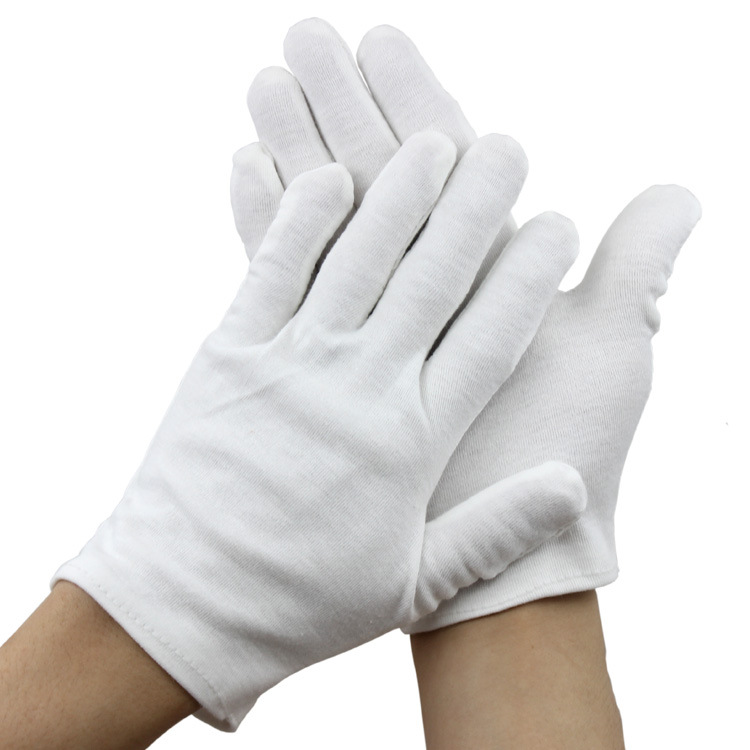Safety gloves:
Safety gloves factory also known as protective gloves. These gloves are used in different workplaces to protect against harm from chemicals and hazardous instruments. Workers can complete their tasks in a hazard-free environment by using safety gloves, which protect them from both physical harm and the spread of germs. Chemical burns, abrasions, cuts, and a wide variety of other injuries are all preventable if you and your employees wear safety gloves.
Use of safety gloves:
An extremely sophisticated tool, the human hand is capable of carrying out many different functions. If it sustains serious damage, it could not be strong enough or precise enough to carry out vital activities. A hand injury might render a worker permanently incapacitated. There is a wide range of possible hand hazards in several sectors. Workers at industrial facilities, for instance, may need to take precautions to avoid having their hands cut, pierced, or crushed by large machinery. The hands of workers in chemical factories must be safe from potentially dangerous chemicals, detergents, and other substances that might trigger life-threatening allergic reactions.
Types of safety gloves:
The safety glove factory produces different types of safety gloves. There are two major types of safety gloves which are as follows:
Reusable gloves
Disposable gloves
Reusable gloves:
Reusable gloves provide employees with remarkable strength, durability, and high resistance to chemical irritants. Reusable gloves sometimes trade off sensitivity for durability, but they are generally the best option for tasks that need employees to handle hazardous materials or machinery, especially for extended periods.
Materials used in reusable Safety gloves factory:
- Knit: Knit is made of synthetic materials and fibers. They offer mild heat and cold protection and are abrasion-resistant.
- Leather: Leather is made from the processing of animal skins and hides. The safety gloves factory uses this leather to produce safety gloves. Leather safety gloves offer protection against sharp objects, chips, sparks, and moderate heat.
- Butyl rubber: Butyl rubber is a synthetic polymer that offers resistance too many substances, including strong bases, caustic acids, and ketones.
- Aluminized: Because the inserted metal may operate as a barrier against hot temperatures, this glove material is particularly well suited for use cases involving heat.
Disposable gloves:
Disposable gloves are often less durable and sturdier than their reusable equivalents. However, they could give more sensitivity when doing activities and still offer some defense against little irritants. This description applies to a lot of nitrile gloves.
Materials used for disposable gloves:
- Vinyl: This kind of glove is ideal for basic protection against user-handled material contamination.
- Polythene: Polyethylene gloves are frequently employed in the food service sector. This is because polythene gloves are very efficient for handling food processes.
- Latex: latex is a well-liked option for all-purpose gloves since it is often comfortable to wear.
- Nitrile: These gloves are frequently used for conventional chemical applications because they can withstand heavy use without significantly reducing sensitivity.
Protection with safety gloves:
It is essential to understand that different types of safety gloves offer varying levels of protection in the workplace. The following are common forms of protection by safety gloves:
Protection from mild heat or cold:
Leather and cotton gloves can offer a barrier against moderate heat or cold, allowing employees to conduct important manual activities with minimum pain.
Many safety gloves factory manufacturers believe that leather gloves are inherently resistant to cuts and they are good for their employees. However, safety gloves made from synthetic fibers such as Kevlar and Dyneema offer up to ten times the cut resistance of leather.
Thermal protection:
Kevlar gloves give a high level of thermal protection for personnel who must operate in harsher environments.
Abrasion resistance:
Dyneema-engineered gloves have outstanding abrasion resistance, making them a good alternative for specialized manufacturing tasks.
Chemical resistance:
Gloves produced from various types of rubber or plastic are ideally suited for applications requiring resistance to hazardous chemicals.
Gloves that are resistant to hazards yet have inadequate grip might cause occupational injuries due to slipping. Numerous safety gloves factory manufacturers customize their goods with a sponge nitrile layer that improves grip. If employees need to protect their lower arms, they must wear safety gloves with a greater cuff length.
The sort of glove a worker should wear relies on the duties performed and the associated risks. For example, workers in a chemical laboratory will require a different type of safety glove than those on a building site. It is essential to identify dangers and then select which sort of gloves will give the highest level of protection for the personnel involved.
How to choose between reusable and disposable safety gloves:
When deciding between disposable and reusable gloves, you should evaluate the duties in your facility. If your workers come into contact with chemicals, medical supplies, or culinary components. They may dispose of discarded gloves to limit the risk of product cross-contamination and enhance staff hand hygiene. If your workers operate with large weights, loads with sharp edges, or temperatures that fluctuate, however, reusable gloves are the best option. In industrial contexts, reusable gloves provide more hand protection than disposable gloves. If, however, personnel in one section of your facility need disposable gloves while those in another section require reusable gloves for their jobs, it is advisable to purchase both types of gloves. Then you may distribute each kind of glove where it is most required.
Conclusion:
Safety gloves should be compulsory in all hazardous workplaces. Many safety glove factories manufacture different types of safety gloves. Among many safety glove factories, the N&M safety gloves factory is becoming popular all over the world. They are very famous for their large variety and quality gloves. N&M safety are also good at providing good services to their customers.
Read more: Purpose of wearing Heavy duty Gardening Gloves

